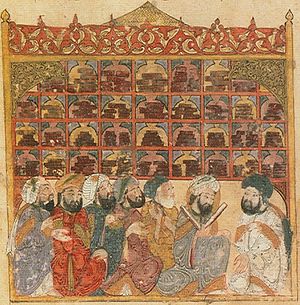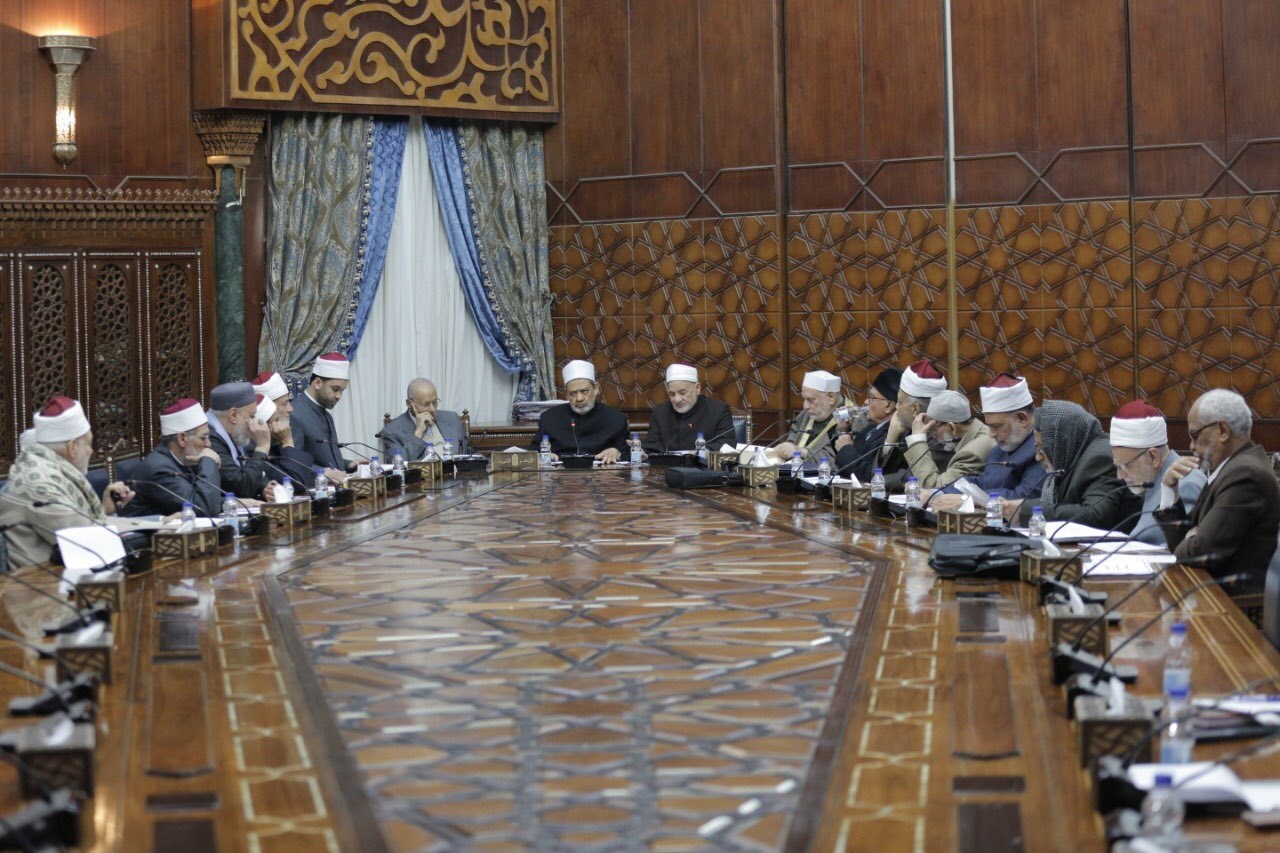Imam Malik, founder the second fiqh school after Imam Hanafi, said that his monumental book, al-Muwaththa’, had been verified by 70 famous Ulama—people who expert in islamic studies—in his age. Al-Muwaththa’ which means “agreed” (or in other interpretation means “well-trodden path”) in Arabic justify the claim.
We certainly understand that there are dissents of Ulama oppinion. And it is just natural among intellectual discourse. Despite al-Muwaththa’ had been agreed, it did not mean that the contents of the book were not differred with legal opinions of other Ulama.
The book entitled Al-Umm written by Imam Shafi’i, for example, explained that the dissent occurred, despite the Shafii genealogy (sanad) to Imam Malik since he was Imam Malik student.
In the manhaj or takwil method to establish an islamic law, they both have different approach. Imam Malik is well-known with “Madina” approach which refers to the people of early Medina. And Imam Malik said that the people of early Medina lived in the ideal Islamic law. It is certainly different with as-Shafi’i who emphasized more on Sunna.
But, it was not mean that Imam Malik lose his law reference of Muhammad Sunna. As for Al-Shafi’i, he doesn’t exclude Maslahah Mursalah and Urf, both are among methods of extracting islamic law.
It is just an example of ijtihad (a new earnest effort to produce contextually law) that produces the building of fatwa which is different each others. Speaking about shaking hands between man and woman, for example, Imam Malik said that it isnot allowed (haram). Imam Shafi’i also said such pactice is haram, but if there is a divider, tabir, or kasyf , then it is allowed. So, there is a possibility of exception.
Now, let’s imagine how legal opinion (fatwa) on islamic law that recently produced and published easily. In other words, there is a situation where Islamic legal opinion is produced without proper expertise and responsibility.
Whereas there are so many diferences and contextuality to raise. It is certainly good if the diverse opinions are produced by those pious and experts in Islamic studies. But, what if opinions are produced by popular preacher, with less-authoritative expertise, what will happen?
Let me recall a theory of Ian Barbour about “authoritative mechanism”. He said that the theory must be firstly through a community researchers expert at science. It means that a theory is not allowed to disseminate out to common people without a theoretical test in the first place.
Probably, the same thing would be an inevitability of goodness for the building of islamic law. There should be a competence test of a fiqh opinion, before it is shared to public. Avoiding the quarrel of people must be priority than having an ambition to create a new legal opinion on fiqh.
In Pesantren tradition, the mechanism of fatwa test has been going on for a long time. It is known some methods like muhadharah (face to face study), muthala’ah (research), and muraja’ah (review study), or more advance like bahtsul masail, and others.
Such testing methods would automatically eliminate opinons or fatwa that are not, or less-authoritative. Furthermore, even though an Islamic legal opinion or fatwa would probably be authoritative and justified, but the legal council would understand that harmony (al-maslahah) among society is also important to take into consideration given the case would spark controversy.
So, the methods will put the case under discussion of the experts. And for the commoners who are less-experts, are expected to follow the results. Moreover, being a follower isn’t that bad, is it? And, don’t force ourselves to be a Mufti among our limited knowledge and expertise.
For us the commoners, let’s reflect immediately a Hadith about ijtihad, telling that a Mujtahid would be granted two rewards for his right decision and one reward if the decision is wrong. Basically a result of ijtihad doesn’t bind for everyone, but is just applicable to Mujtahid (person who puts a thorough exertion effort in finding a solution of an Islamic law).
A legal opinion or a fatwa must be produced by thorough exerts and discussions. Fatwa by those having no Mujtahid competences should be invalid according to scholarly authority and probably only coming from by those having no fear to God.
We can imagine that if a legal opinion of complicated social realities was referred to one Hadith only, by those who are less-experts, thus the legal opinion will be forced to the society without considering the social realities. Moreover, a Hadith does not stand alone as it is, a Hadith also related to the themes of Quranic verses, ‘urf (tradition), contextuality, and anything else.
Consequently, the result of fast-produced fatwa will be ridiculous. The examples of the ridiculous fatwa are strictly put the case under “black and white” view, and losing the light of wisdom to the people.
Finally, to prioritize akhlaq (attitude) before Quranic verses and Hadith does important for us. Don’t be a part of producer of fast-produced fatwa that disrupting the harmony of ummah, without proper knowledge and responsibility of piety. Hence it will result nothing but bad news, chaotic controversy and hostility among people (ummah).
![Islami[dot]co](https://en.islami.co/wp-content/themes/jambualas/images/logo.png)



